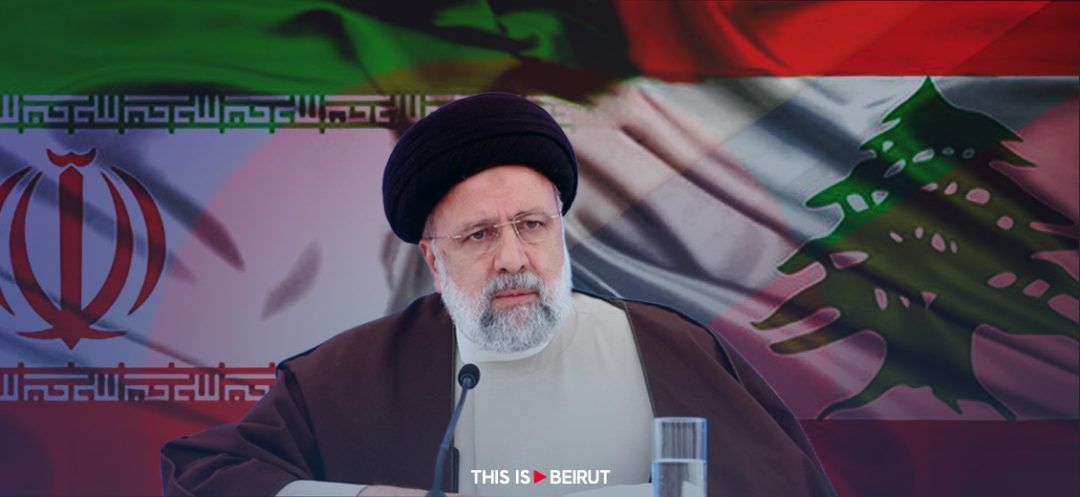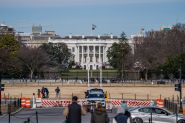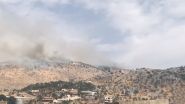
Will the death of Iranian President Ebrahim Raisi have any impact on Lebanon? This is a question many in the country have been asking since the confirmation of the president's and his Foreign Minister Hossein Amir-Abdollahian's disappearance in a helicopter crash on Sunday in Azerbaijan.
Asked by This Is Beirut, writer and journalist Mustafa Fahs emphasized that Iran's foreign policy towards Lebanon will not change, regardless of who is elected as the head of the Islamic Republic.
"Iran is not a state that can be influenced by the loss of one person. The adjudicators of Tehran's foreign policy are the Supreme Leader and the Revolutionary Guards, not the Iranian president or government," he clarified.
Fahs recalled that the assassination of Qassem Soleimani in January 2020 "had no impact on Iranian policy towards Lebanon." "In the case of Raisi and Abdollahian, it will be the same," he noted.
Commander of the Quds Force, the elite unit of the Revolutionary Guards, Qassem Soleimani was killed in an American raid on Baghdad airport in 2020.
On Monday morning, the Iranian government appointed Ali Bagheri Kani as interim Foreign Affairs Minister, replacing Hossein Amir-Abdollahian. Since foreign policy is determined by the Supreme Leader, "anyone tasked with representing Tehran's foreign policy is there only to execute his orders, otherwise they should go home," insisted Fahs.
The influence of Hezbollah
Iranian influence in Lebanon, through Hezbollah, is known to be the most controversial in the country. It divided the country into two camps: the so-called Moumanaa (pro-Iranian) and the opposition fighting against this influence. For the opposition, the "Iranian occupation" of Lebanon has been the main cause of the country's collapse for several decades, particularly since the assassination of former Prime Minister Rafic Hariri in 2005.
When Raisi won the presidential election in 2021, Hezbollah leader Hassan Nasrallah hailed "a great victory at a sensitive and fateful moment in the history of Iran and the region." "Your victory has revived the hopes of the Iranian people and the peoples of our region who see in you a fortress and solid support for the (Hezbollah’s) resistance against aggressors," he declared.
Iranian foreign policy in Lebanon
As in a mathematical theorem, "Iran controls Hezbollah, which controls the Lebanese state, which means that Iran, through Hezbollah, controls the Lebanese state. The decision of war and peace in Lebanon therefore belongs to Tehran," according to Mustafa Fahs.
But what is the exact nature of the relationship between Iran and Hezbollah? It is a symbiotic one, in the sense that it does not depend on political alignment or the financial aid provided by Tehran to the group. However, the details of Iran’s influence remain unknown, as well as the margin of maneuver that Hezbollah has, compared to its Iranian patron, on the Lebanese political scene.
The existence and rise of this formation remain the greatest success of Tehran's foreign policy since the 1979 Islamic revolution. Hezbollah is, therefore, its most successful export.
This is one of the reasons why, since the beginning of the Gaza war between Israel and Hamas, Iran has refused to engage its local ally in an open war with Tel Aviv. Hezbollah is content to maintain tension at the southern border through continuous artillery exchanges with Israel, which, despite their occasional violence, remain limited.
However, the risk of an escalation of the conflict is not ruled out, and in such a case, Hezbollah would be Iran's best strategic weapon against Israel.
Read more




Comments